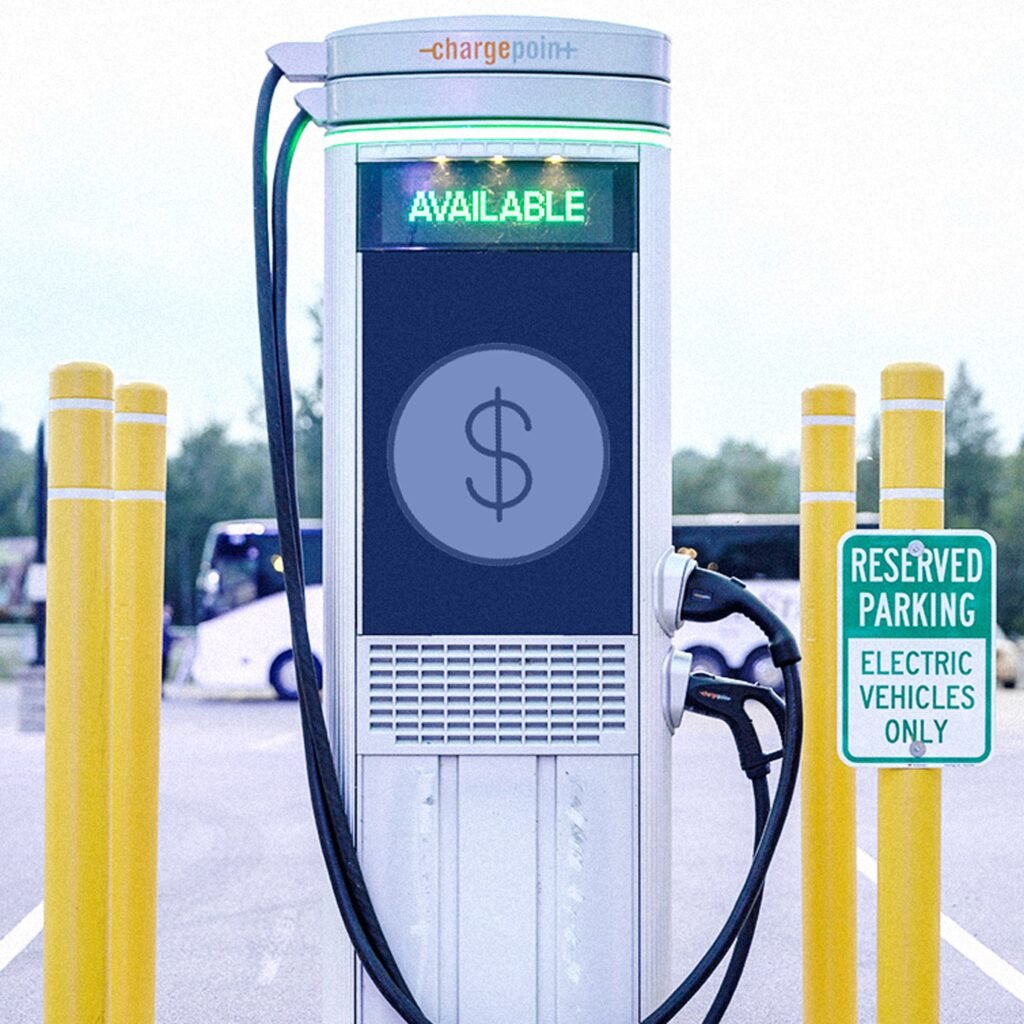
There’s good news about electric vehicle charging, according to new survey results from the analytics firm JD Power: Drivers are more satisfied with their public charging experiences than last year. In fact, it’s the second quarter in a row that’s seen happier EV drivers.
When it comes to public fast chargers—which can generally top up electric vehicle batteries in 15 minutes to one hour—the drivers are much more pleased with availability and ease of payment. Satisfaction around public fast-charging times has improved, too.
But one pain point stands out: how much it costs to use a public fast charger. “It’s the least satisfying aspect of fast charging,” says Brent Gruber, the executive director of the electric vehicle practice at JD Power. “It’s pretty sizable in terms of its impact.”
In fact, there’s data to back up drivers’ pricing qualms. Public fast charging has gotten a touch more expensive this year, according to a new analysis by Stable, an electric vehicle charging software company. Public fast chargers increased from an average of 45 cents per kilowatt-hour at the end of March to 46 cents per kilowatt-hour at the end of June. At that price, it would cost about $35 to charge a Tesla Model 3 Performance and just over $40 for a Ford Mustang Mach-E.
Why are drivers frustrated with pricing? One reason might be that, for good reason, drivers don’t understand how electricity pricing works. Another could be that, while gas stations are the only place gas-powered cars can get fuel, public charging stations are just one option for EV drivers—and they’re used to paying much less to charge. By comparison, public fast charging might feel way too pricey.
$$ Questions
It turns out that electric-vehicle charging prices are pretty complicated. For one thing, just like gas prices, they vary across states and even cities. Stable’s data shows that some states, including Georgia, Tennessee, Wyoming, and New Hampshire, saw higher than 10 percent jumps in public fast-charging prices. (Perhaps not coincidentally, JD Power’s survey finds that drivers in New England, home of New Hampshire, are least satisfied with public fast-charging prices.) Some of these jumps, Stable notes, are in places where prices were much lower than average; now, they’re keeping up with the Joneses.
Another complexity that might be frustrating EV drivers: Electricity pricing itself is confusing and is in the midst of changing. A lot of variability in electricity prices—and so, the price a driver will pay to “fill up” their car at a charging station—depends on how electricity is generated, either through natural gas, solar, hydropower, or coal. The costs of that infrastructure, including not only build-outs but also expansions and maintenance, gets baked into the final price at the pump.
But wait, there’s more: Different public utilities also use different public incentive programs and price their products differently. And there are about 3,000 public utilities in the United States.
Content retrieved from: https://www.wired.com/story/how-much-will-it-cost-to-charge-my-electric-car-its-complicated/.






